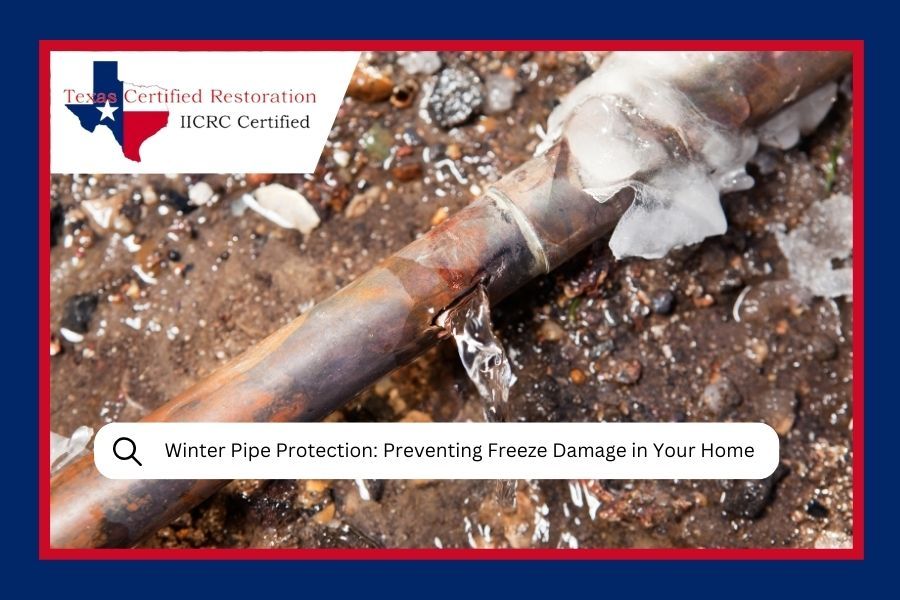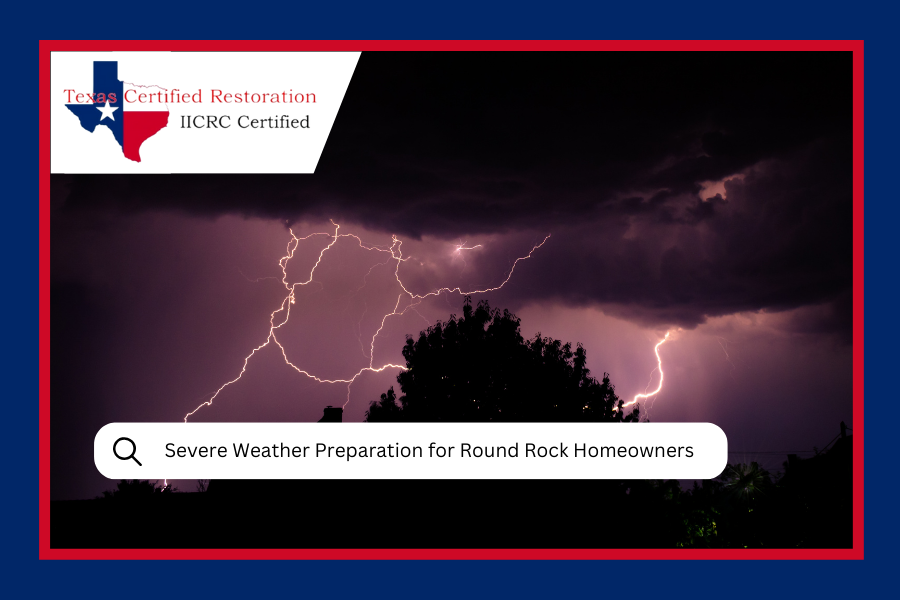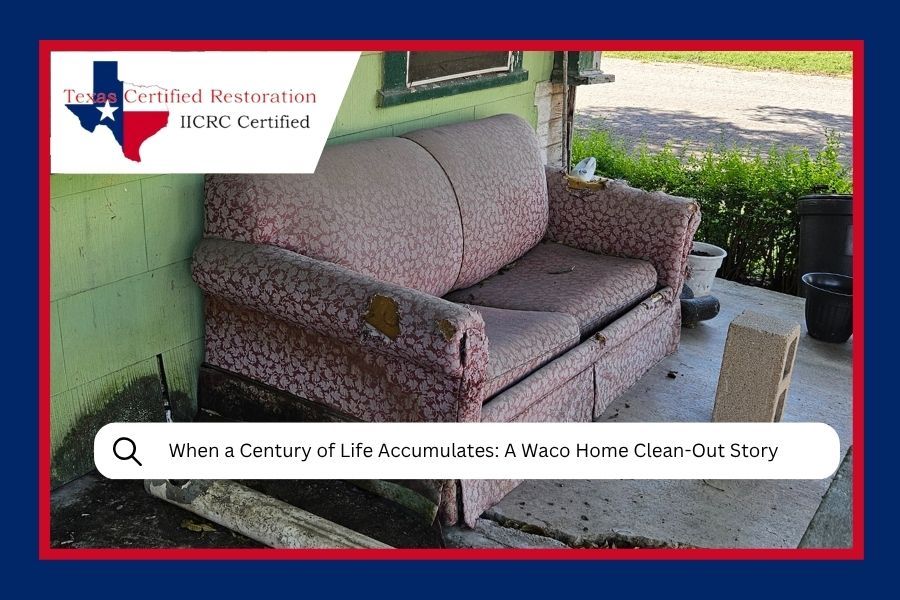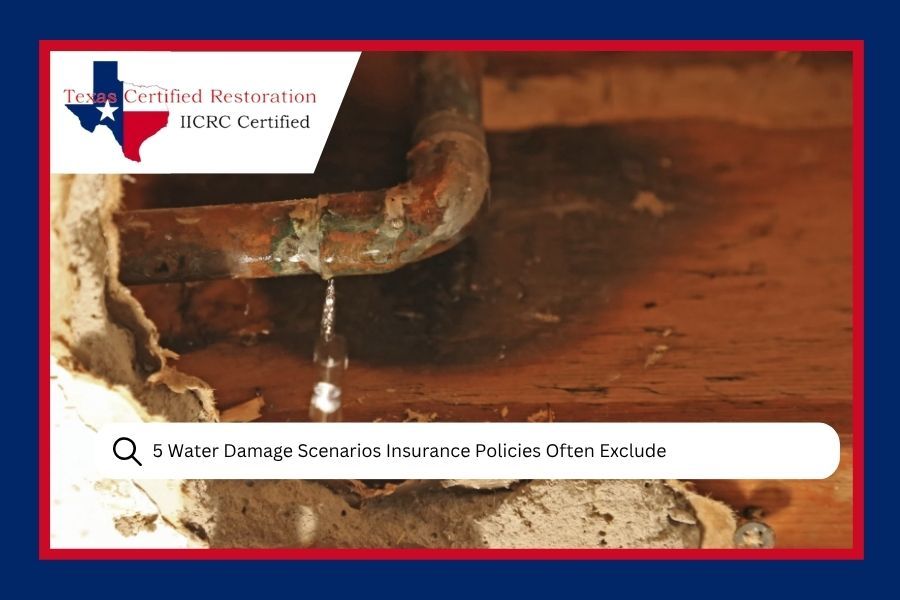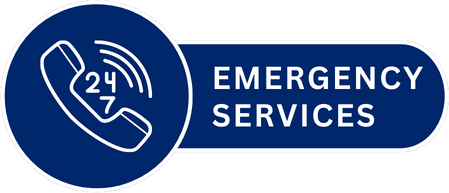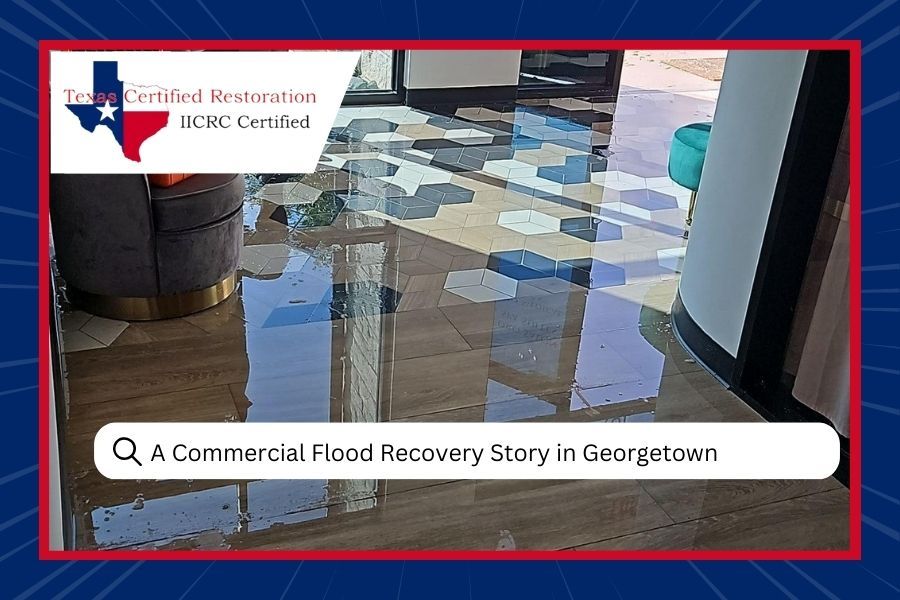
A Commercial Flood Recovery Story in Georgetown
Sometimes Mother Nature decides to test everything at once. That's exactly what happened to a commercial facility in Georgetown, TX when unexpected flooding turned their well-maintained space into something resembling a small lake. The kind of situation that makes business owners' stomachs drop, because you know the clock is already ticking.
When we got the call for flood damage restoration services, the facility manager's voice had that familiar mix of panic and determination. Water doesn't wait for convenient business hours, and neither does our team at Texas Certified Restoration.
The Discovery: More Than Meets the Eye
Walking into the facility, our first thought was classic flood damage, but this job had some unique challenges. The water had found its way through multiple treatment rooms, a main corridor, and had settled in like an unwelcome houseguest with no plans to leave.
Standing water covered the tile floors throughout the affected areas, creating perfect mirror reflections of the overhead lighting. Pretty? Sure. Devastating for business operations? Absolutely.
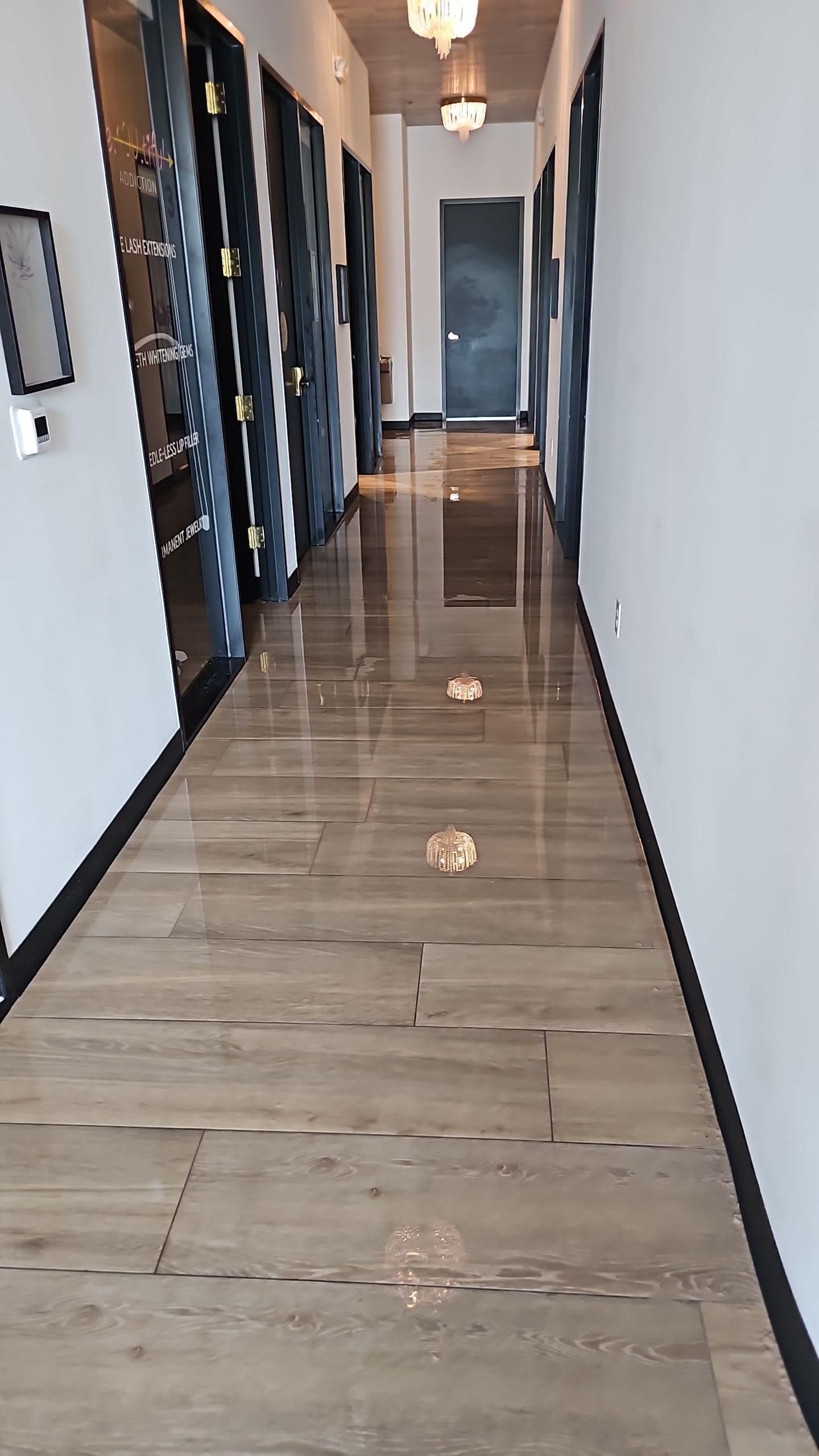
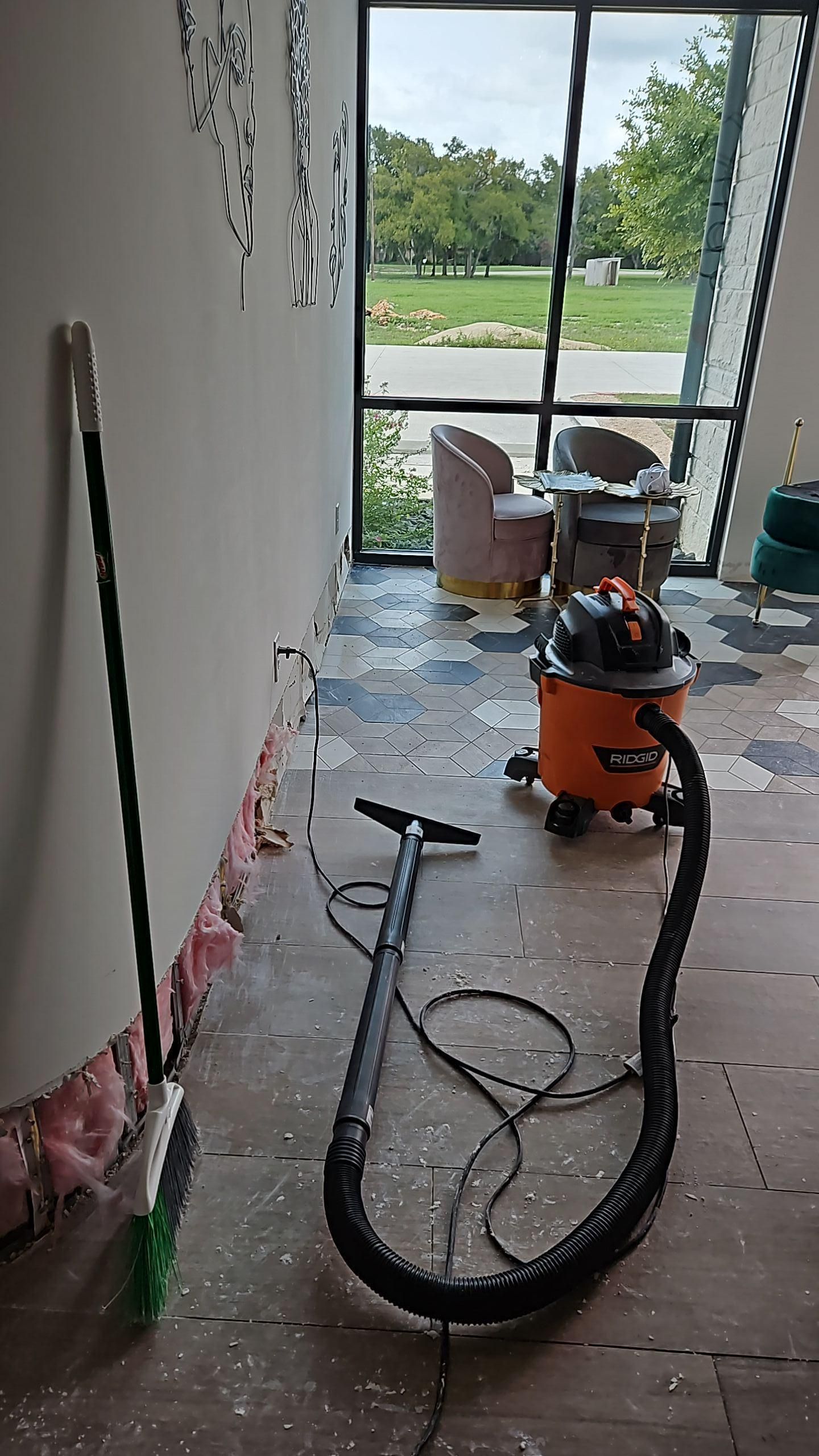
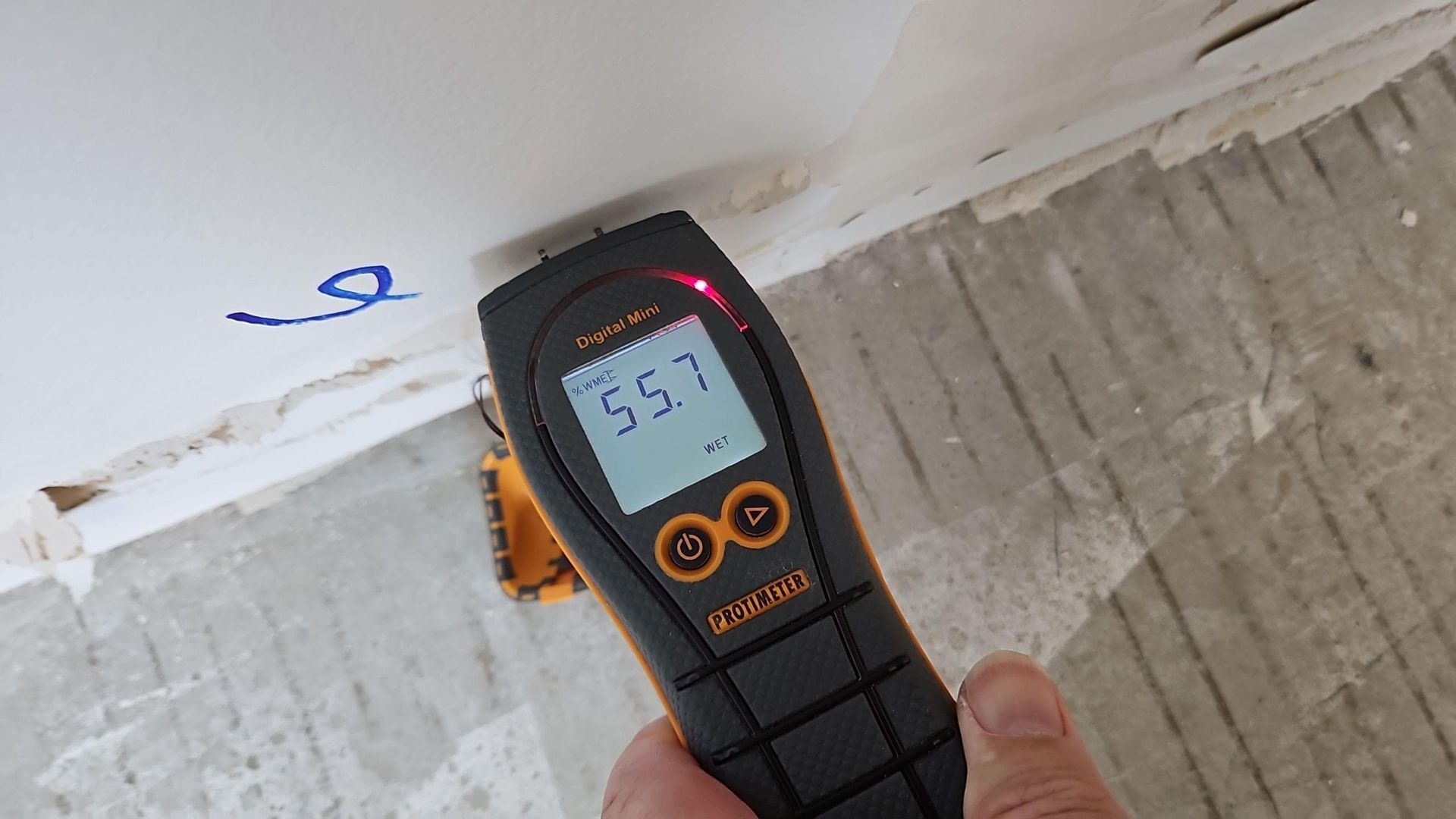
What We Found:
- Standing water covering tile floors in multiple rooms
- Compromised drywall throughout the lower sections
- Saturated insulation behind walls
- Drop ceiling tiles collapsing from water weight
- Moisture levels hitting dangerous territory at 55.7% in affected walls
The moisture meter readings told the real story. When you're seeing numbers that high, you know the water has had time to work its way deep into building materials. This wasn't just surface flooding. It was a full infiltration situation that required immediate professional intervention.
The Science Behind Flood Damage
Here's something most people don't realize about commercial water damage : the visible water is just the beginning. Water loves to travel, and it'll find every possible path through your building materials.
In this Georgetown facility, the water had wicked up into the drywall, soaked the insulation, and even compromised the drop ceiling system. Those ceiling tiles weren't just stained. They were literally falling apart from the weight of absorbed moisture.
Our team knew that without proper drying techniques, this kind of moisture intrusion leads to secondary damage within 48-72 hours. We're talking about potential structural weakening and the kind of problems that turn a manageable situation into a complete renovation nightmare. Poor indoor air quality becomes a serious concern when moisture gets trapped in building materials.
Our Restoration Process: Methodical and Thorough
Phase 1: Water Extraction and Assessment
First things first: get the standing water out. But extraction is more than just running some pumps. We strategically removed water while documenting moisture levels throughout the facility. Every reading matters when you're tracking the scope of damage.
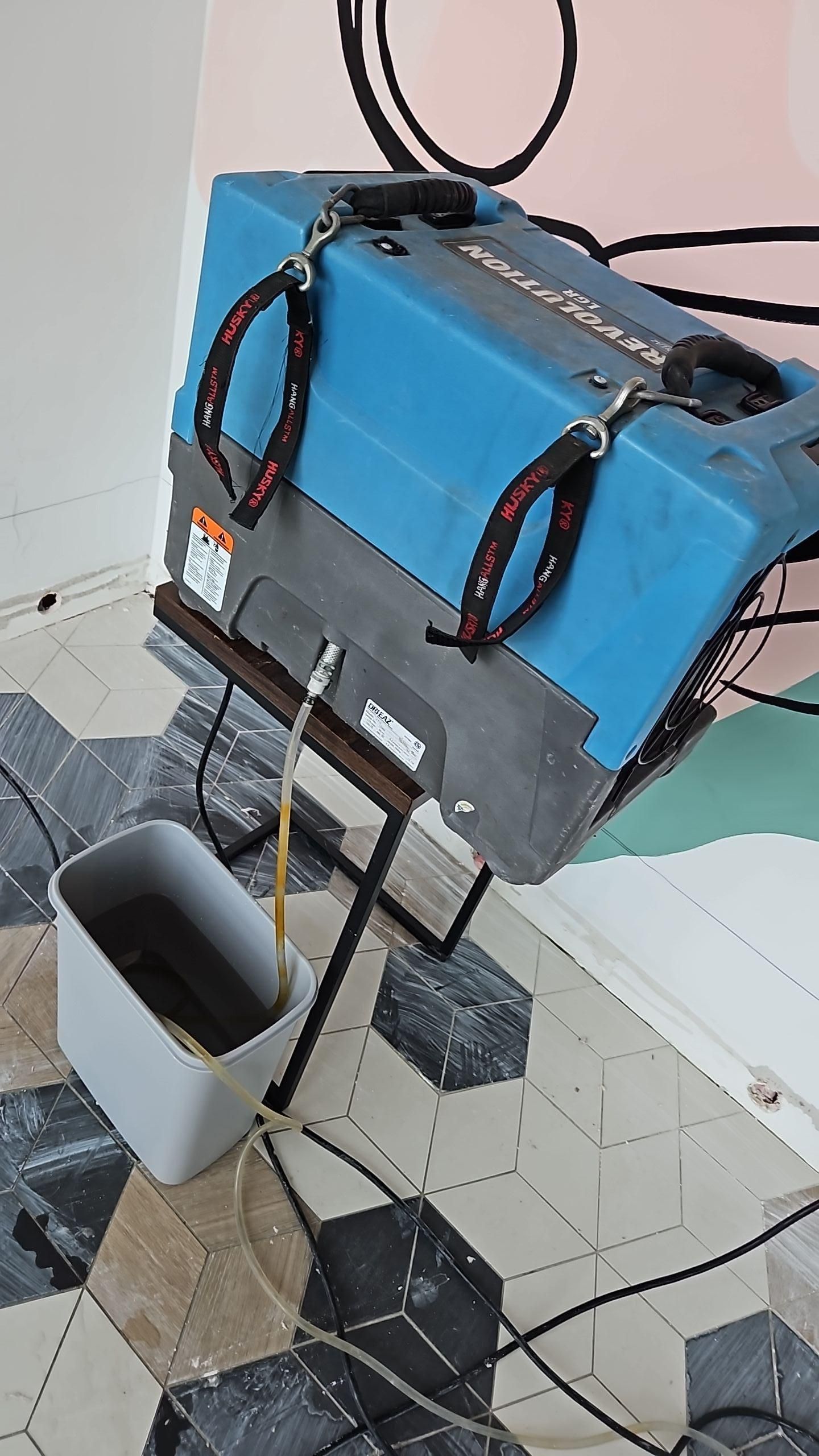
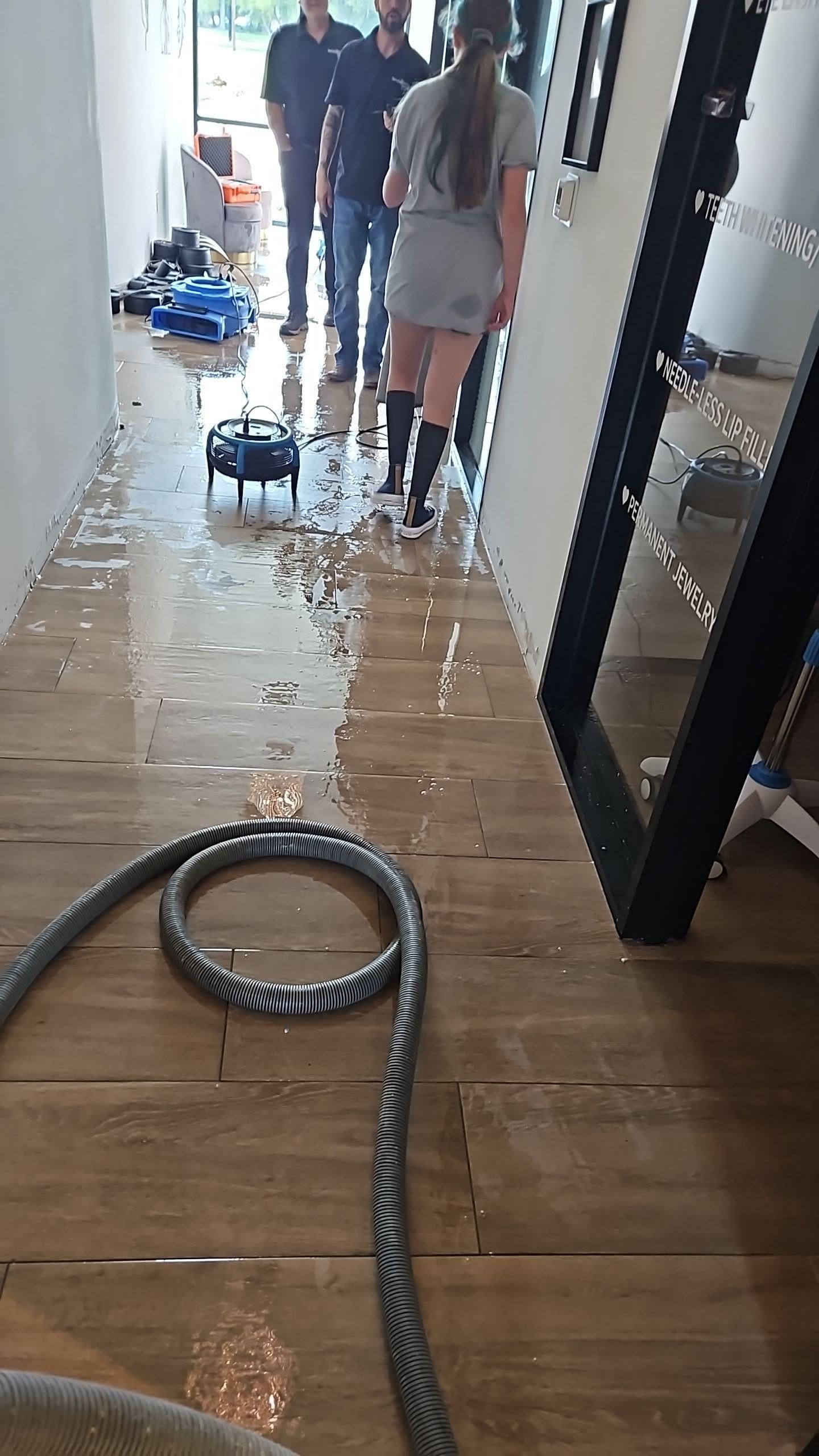
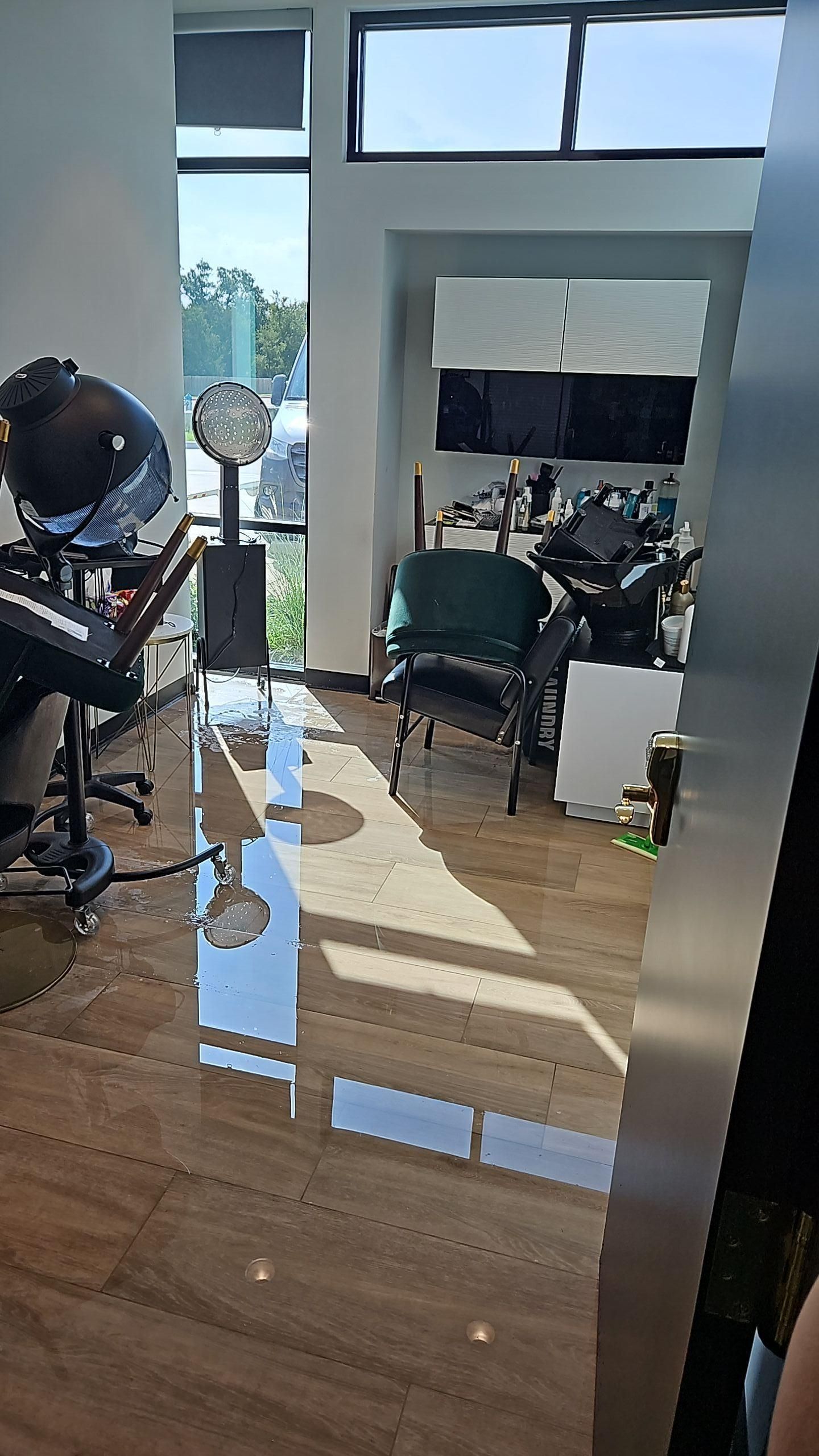
Phase 2: Controlled Demolition
This is where experience really shows. Looking at those photos, you can see we didn't just rip everything out. We made surgical cuts in the drywall, removing only what was beyond saving while preserving as much original structure as possible.
The key areas that needed attention included lower drywall sections that had absorbed water beyond recovery, saturated insulation that was dripping water, compromised ceiling tiles throughout affected areas, and baseboards and trim that had swollen from moisture exposure.
Phase 3: Professional Drying Setup
Here's where the real magic happens. We deployed commercial-grade equipment specifically designed for this type of restoration. LGR Dehumidifiers aren't your home improvement store units. Low Grain Refrigerant dehumidifiers can pull moisture out of the air even in challenging conditions. We positioned air movers strategically to create proper airflow patterns, not just random fan placement, and conducted continuous monitoring with daily moisture readings to track progress and adjust equipment as needed.
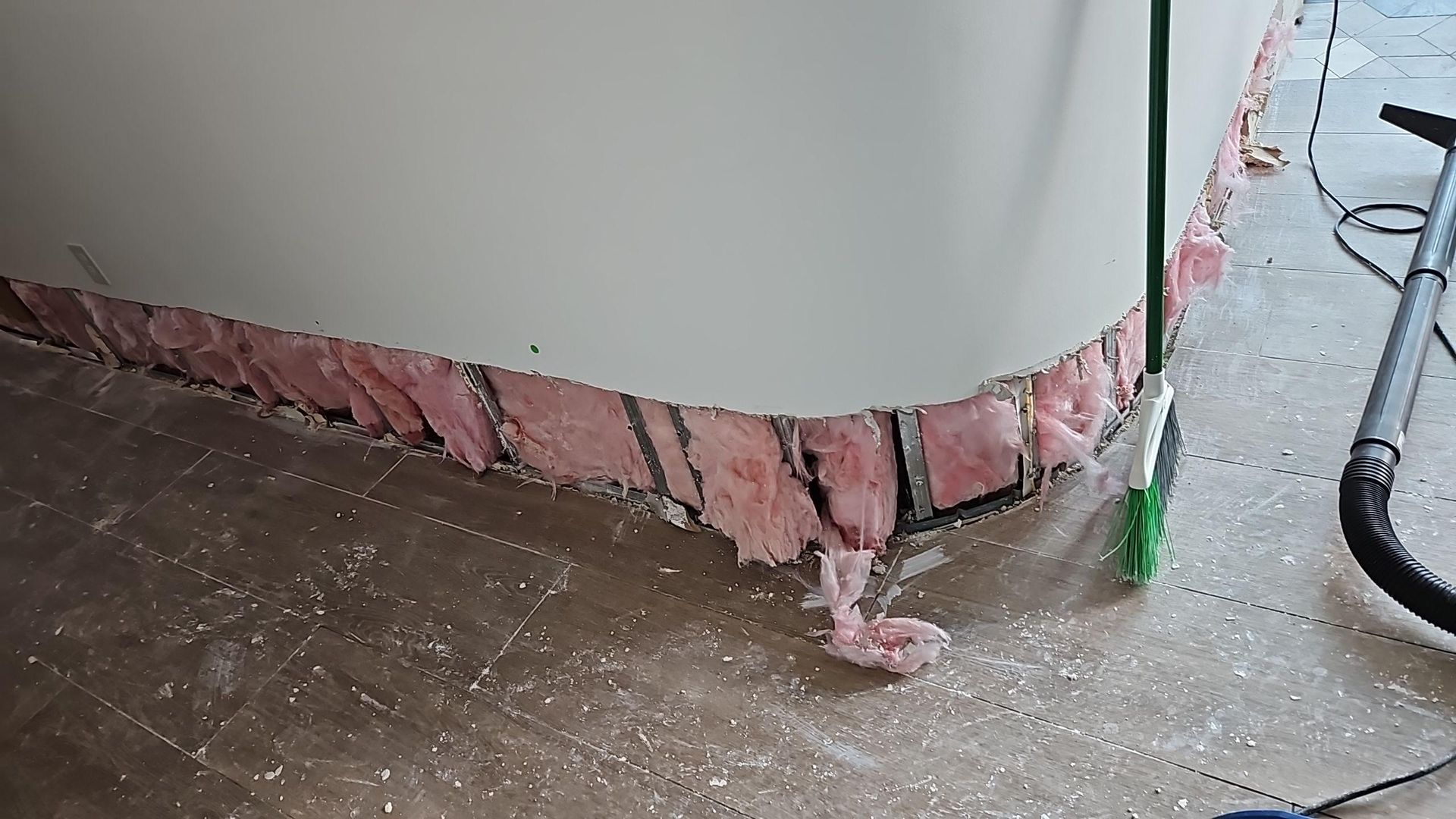
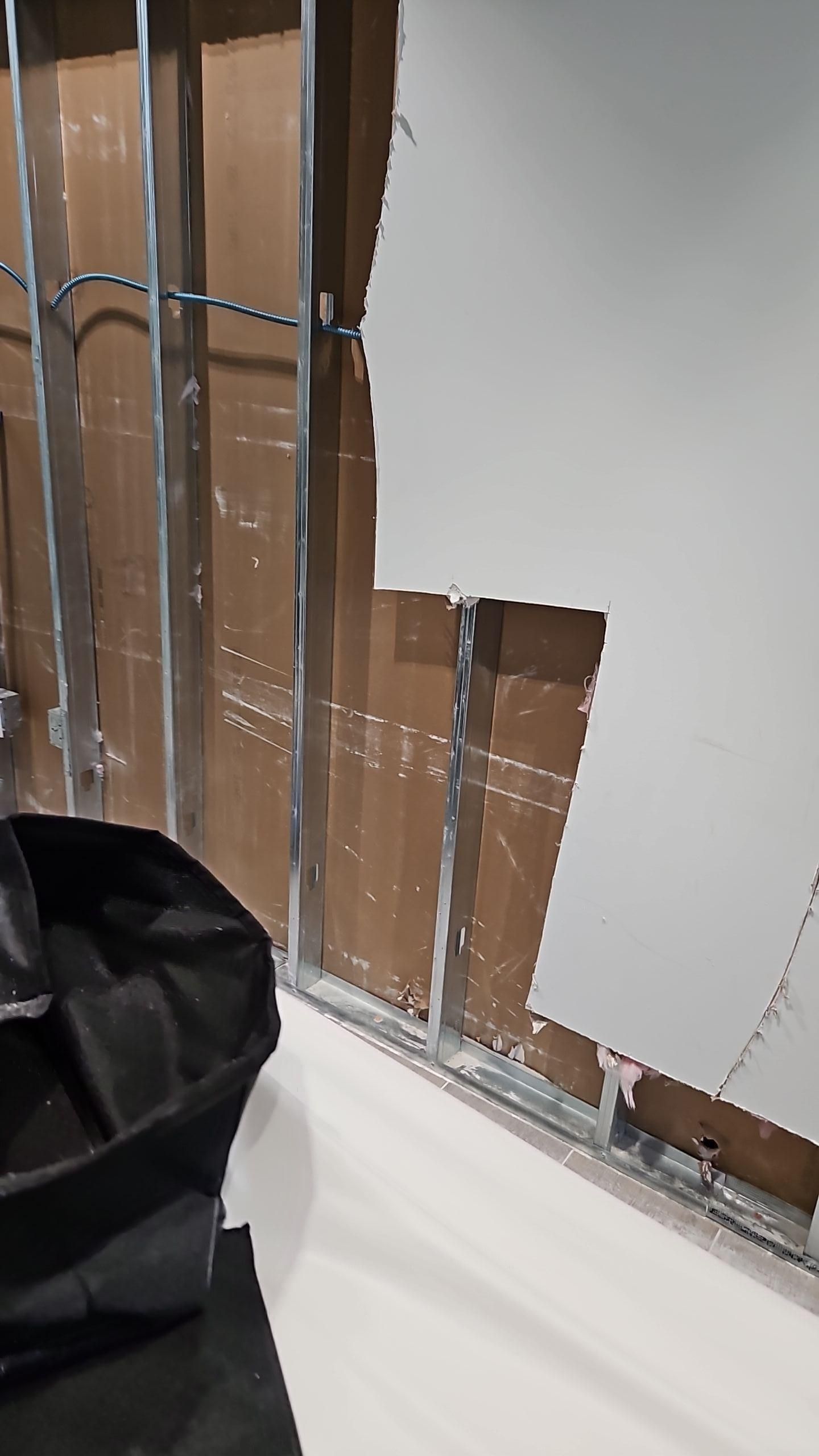
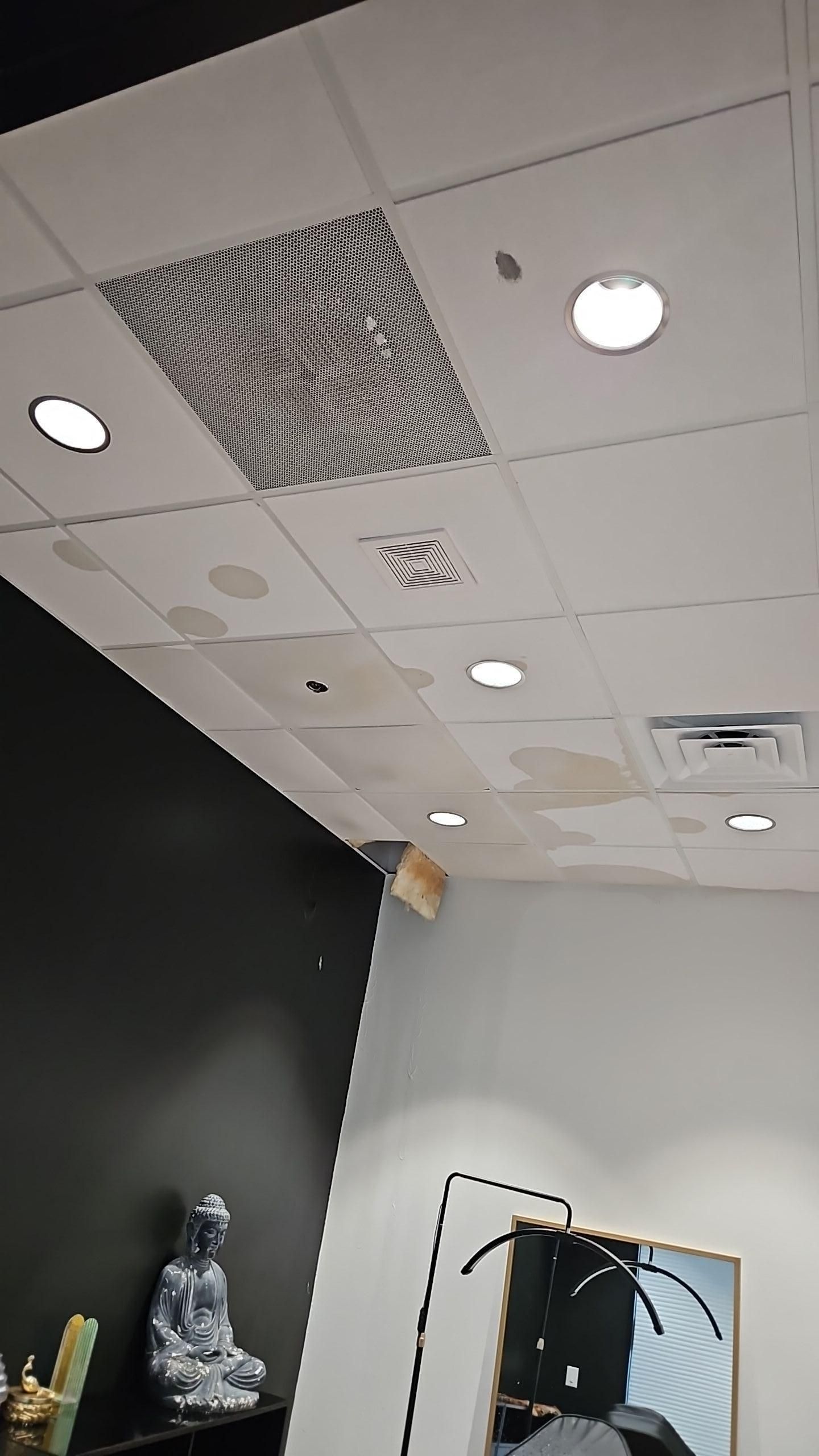
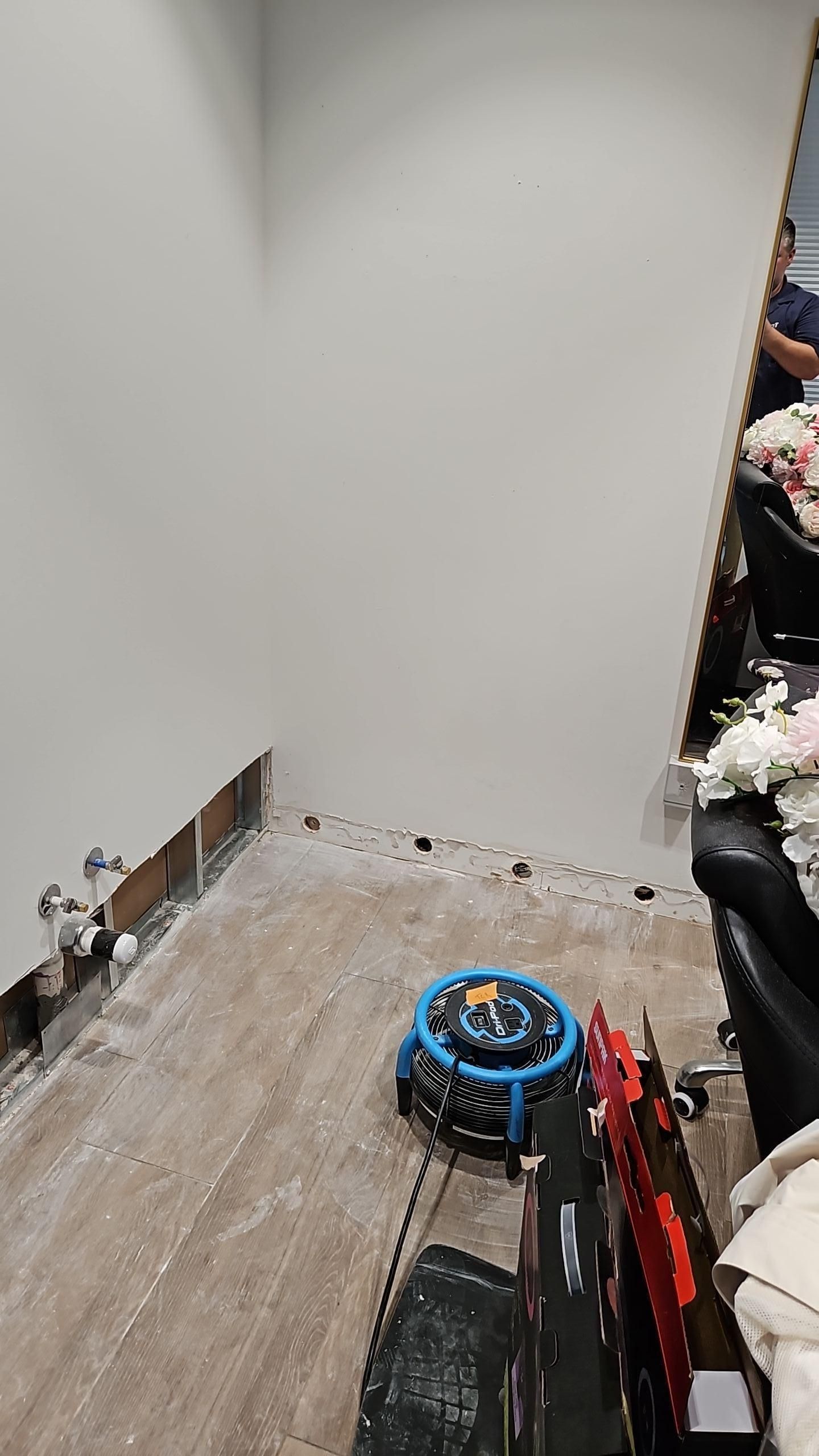

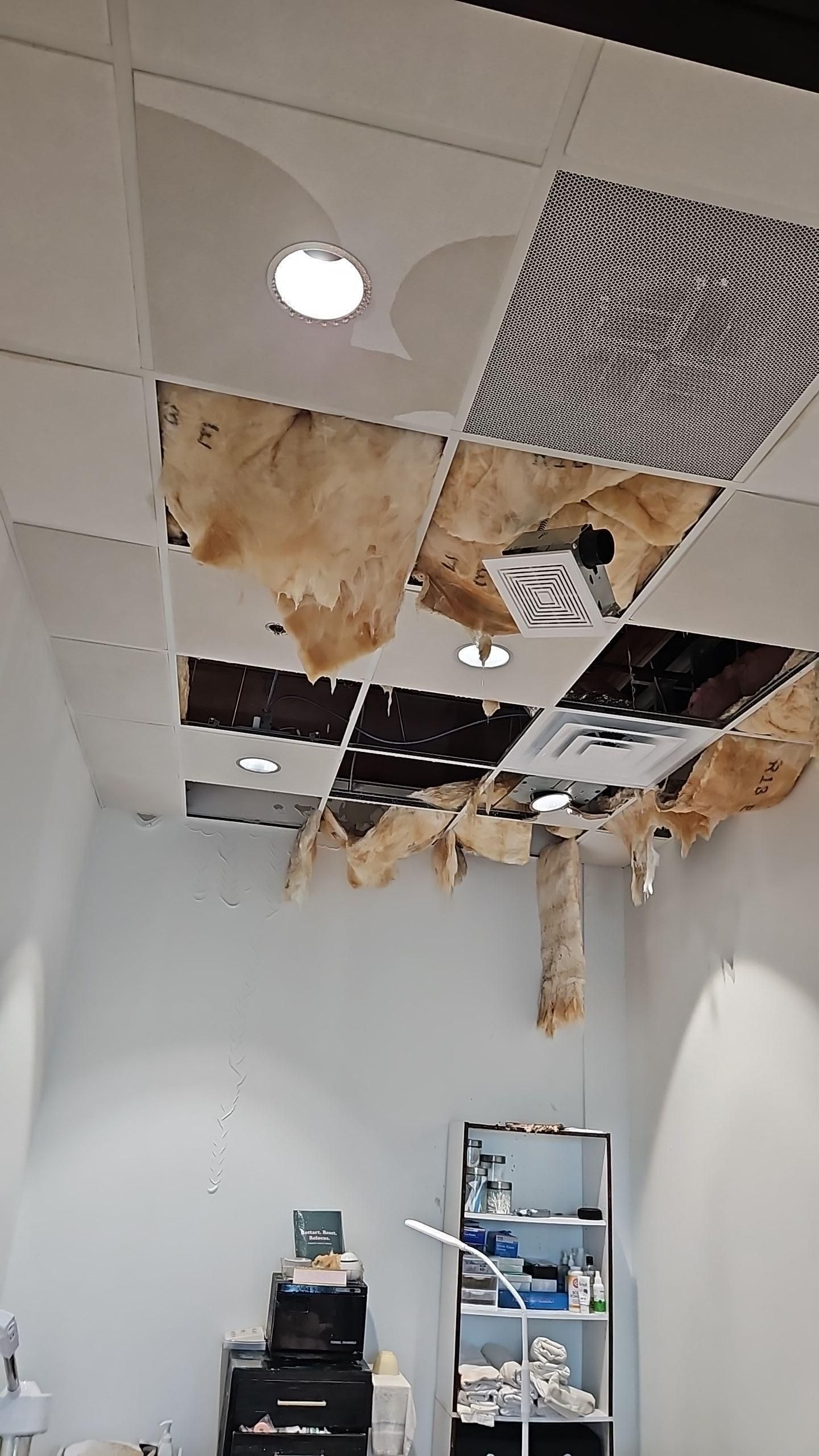
The Equipment That Makes the Difference
Professional flood restoration equipment isn't just bigger versions of what you'd rent at the hardware store. The LGR dehumidifier we used can extract moisture even when humidity levels are already low, something standard units can't handle effectively.
The air movers we positioned throughout the facility created a controlled drying environment. It's not about blowing air randomly. It's about creating airflow patterns that move moisture-laden air across wet surfaces and toward the dehumidification equipment.
Why Speed Matters in Flood Restoration
Every hour counts in flood restoration, and this Georgetown job was a perfect example. The facility needed to get back to serving their community, and prolonged downtime wasn't an option.
Our approach focuses on stabilizing the situation quickly, then implementing a systematic drying process that actually works. It's the difference between getting back to business in days versus weeks.
Lessons from Georgetown's Flood Response
This job reinforced something we see repeatedly in the Round Rock and North Austin suburbs: water damage rarely stays contained to one area. The flooding that started in one section of this facility traveled through the building in ways that weren't immediately obvious.
Business owners often ask us about common mistakes during flood damage restoration. The biggest one? Assuming you can handle it yourself or waiting to see if things dry out naturally.
By the time visible moisture disappears, hidden moisture in wall cavities and building materials can already be creating problems you won't see for weeks or months.
The Restoration Results
After several days of controlled drying and monitoring, the facility was back to safe moisture levels throughout. The systematic approach meant we could restore the space without having to gut entire rooms or replace structural elements that were still sound.
The business was able to reopen much sooner than they initially feared, and more importantly, they reopened with confidence that the restoration was done properly by certified professionals.
When Disaster Strikes Your Business
Commercial flooding doesn't follow business hours, and the response shouldn't either. Whether it's unexpected weather, plumbing failures, or any other water emergency, having a plan makes all the difference.
For businesses throughout Travis County, Williamson County, and Bell County, that plan should include knowing who to call for professional water damage restoration. Our team at Texas Certified Restoration has handled everything from small residential leaks to major commercial flooding situations like this Georgetown facility.
The key is getting professional help quickly, before minor water damage becomes a major renovation project. We've seen too many businesses try to handle flood damage themselves, only to deal with structural problems and indoor air quality issues months later.
Don't Let Water Damage Destroy Your Business
When flooding strikes, every minute counts. Our certified professionals are standing by 24/7 to help you get back to business fast.
24/7 Emergency Response
Water doesn't wait for business hours, and neither do we. Call anytime for immediate help.
Certified Professionals
Over 10 years of combined experience with satisfaction guarantee throughout the Austin area.
Service Areas: Round Rock, Georgetown, Austin, Cedar Park, Leander, Pflugerville, Hutto, and all of Travis, Williamson, and Bell Counties.
If your business faces unexpected flooding, don't wait to see how bad it gets. Call us at (512) 883-6760 immediately for emergency response that actually gets you back to business. Water damage waits for no one, but help is just a phone call away.

